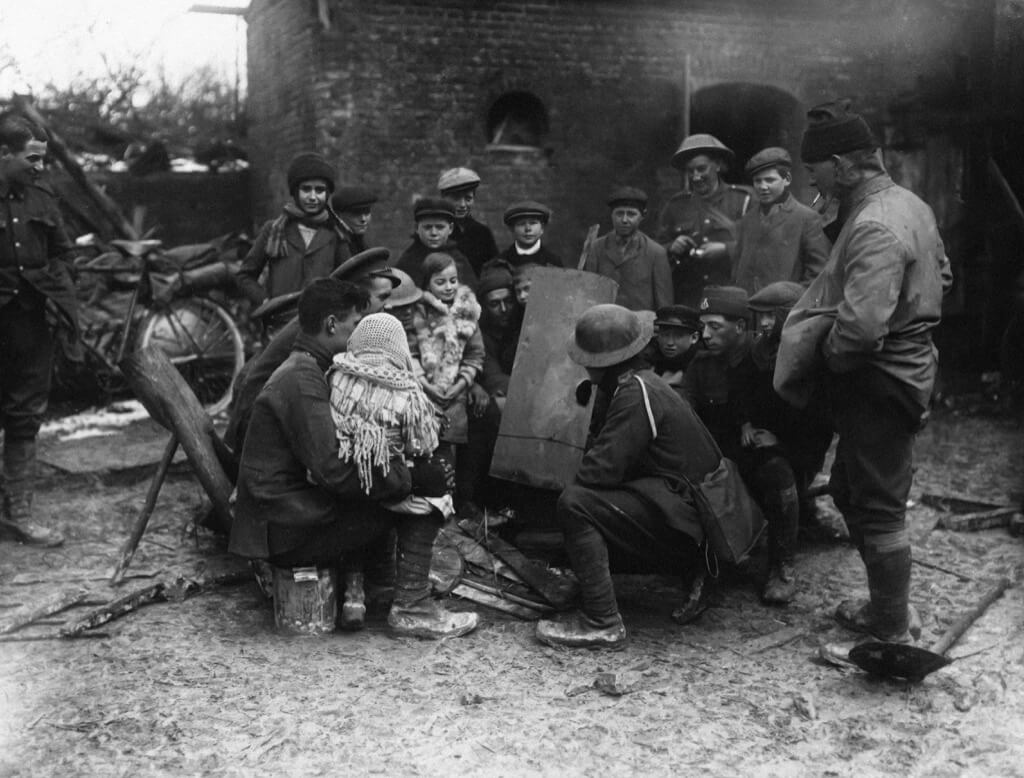Adolf Hitler’s familial legacy took a fascinating turn with his British nephew, William Patrick Stuart-Houston, a story seldom heard. Born in Liverpool, William was the son of Alois Hitler, Jr., Adolf’s half-brother, and Bridget Dowling, an Irish woman.
William’s journey intertwined with his infamous uncle’s rise to power. Initially working in a bank in England, he soon found himself in Germany, courtesy of Adolf Hitler, securing a job in an automobile factory at his insistence. However, Hitler’s tolerance quickly waned, referring to William as “my loathsome nephew” and publicly distancing himself from familial associations, emphasizing, “I didn’t become Chancellor for the benefit of my family.”
Returning to London, William sought to exploit his uncle’s notoriety, only to return to Germany later. Despite Hitler’s offer of a prominent Nazi position in exchange for renouncing his British citizenship, William declined, fearing entrapment in the impending conflict. Disillusioned, he resorted to blackmail, threatening to expose family secrets unless he received financial compensation. Unsurprisingly, this angered Hitler, compelling William to flee back to England, allegedly with a substantial sum.
In a surprising turn, William and his mother received an invitation from the esteemed publisher, William Randolph Hearst, to the United States. Hearst sponsored a nationwide lecture series titled “My Uncle Adolf,” where William shared anecdotes about Hitler and the Nazi regime, captivating audiences across the country.
Seeking to serve in the war effort, William faced rejection from the British forces. His appeal to President Roosevelt highlighted the challenges faced due to his last name, citing the British’s potential reluctance towards someone bearing the infamous Hitler name. Despite being a British citizen and Hitler’s nephew, the F.B.I. eventually allowed him to enlist in the U.S. navy as a Hospital Corpsman during World War II, where he served diligently until his honorable discharge in 1947.
William Patrick Stuart-Houston’s life, entangled with the most notorious figure of the 20th century, showcases a remarkable and lesser-known aspect of Hitler’s family history. His journey from familial ties to an individualistic pursuit amid tumultuous times is a tale that adds a unique chapter to the annals of history.
As we revisit history’s lesser-known facets, the story of William Patrick Stuart-Houston stands as a testament to individual resilience amidst the shadows of a notorious lineage. It is a tale of divergent paths, personal choices, and the pursuit of identity against the backdrop of one of the darkest chapters in human history.
The saga of Adolf Hitler’s nephew offers a glimpse into the complexities and unexpected turns within familial connections, transcending borders and ideologies. William’s narrative serves as a reminder of the intricate threads woven through history, often overshadowed by the more prominent figures and events.
Bonus Facts
- After World War II, William Patrick Stuart-Houston ventured into entrepreneurship, establishing his blood sample analysis business on Long Island. Considering his post-war success, establishing your own venture following turbulent times can offer opportunities for fresh beginnings.
- William’s life after the war was marked by family and legacy. He fathered four sons: Alexander, Louis, Howard, and Brian. Three of them reside in Long Island today, while Howard tragically passed away in a car accident in 1989, two years after William’s death. Understanding and preserving your family legacy can provide a sense of continuity and heritage for future generations.
- The surviving sons of William Patrick Stuart-Houston crafted their own paths. Two brothers run a landscaping company together, fostering a business partnership while preserving familial ties. Meanwhile, the third son pursued a career as a social worker, emphasizing diverse individual pursuits within a family unit.
- The impact of war reverberated in William’s life. The Liverpool apartment where he resided with his family was devastated in a German air raid on January 10, 1942. Acknowledging the effects of historical events on personal lives can evoke empathy and understanding.
- William’s mother, Bridget Dowling, sought to capitalize on Hitler’s fame with a manuscript titled “My Brother-in-Law Adolf.” Historians largely discredit its content, including claims of Hitler’s extended stay in Liverpool in 1912-1913. Exploring family narratives may uncover intricate and disputed stories that shape personal legacies.
- Alois Hitler, William’s father, left the family in 1914 to return to Austria. Despite not divorcing Bridget, he remarried Hedwig Weidemann, sparking controversy due to his dual marriage. His actions extended to fathering a son, Heinz Hitler, who became a Nazi and met a tragic fate in WWII. Understanding complex familial histories can shed light on personal struggles within larger historical contexts.
- Bridget Dowling intervened on behalf of Alois when he faced legal repercussions for his dual marriage, claiming separation before his departure to Austria. Delving into family histories may uncover unexpected twists that shape narratives and legal outcomes.
- Alois initially deceived Bridget Dowling about his social status, claiming wealth when he was merely a hotel waiter. Despite challenges and deceit, their elopement highlights the complexities within intimate relationships and the influence of deception on personal narratives.
William Patrick Stuart-Houston
William P. Hitler, originally William Patrick Hitler, found himself in an unusual position during World War II – a member of the U.S. Navy. Contrary to misconceptions or suspicions of espionage, his service was a compelling yet unforeseen chapter in his life, far from being a clandestine operative.
Swearing into service on March 6, 1944, William embarked on a three-year tenure as a pharmacist’s mate in the U.S. Navy. His decision to serve under a different flag speaks volumes about personal choices amid familial complexities.
Valor and Recognition
William’s dedication was evident in his service, culminating in receiving the Purple Heart medal for a wound sustained during duty. This recognition underscores his commitment and sacrifice in the line of duty.
Clarifying Misconceptions
Despite his familial ties to Adolf Hitler, William’s allegiance lay firmly with the United States during the war. Dispelling notions of espionage or subterfuge, his service was a testament to personal convictions separate from the dark shadows of his uncle’s regime.
The Legacy of William Patrick Stuart-Houston
William’s unexpected enlistment in the U.S. Navy adds a unique layer to the intricate web of relationships and choices during one of history’s darkest periods. His story sheds light on the complexities of familial ties and personal convictions amid global conflict.
Personal Choices in Times of Turmoil
The decision of Adolf Hitler’s nephew to serve in the U.S. Navy speaks volumes about individual agency and the ability to carve one’s path despite challenging familial connections. William’s story serves as a reminder of the complexities inherent in personal choices during times of upheaval.
William Patrick Stuart-Houston’s unconventional journey, marked by defiance, resilience, and personal choices, presents a captivating facet of the Hitler legacy. Beyond the historical confines, it reflects the nuanced realities of navigating identity and legacy in tumultuous times.




